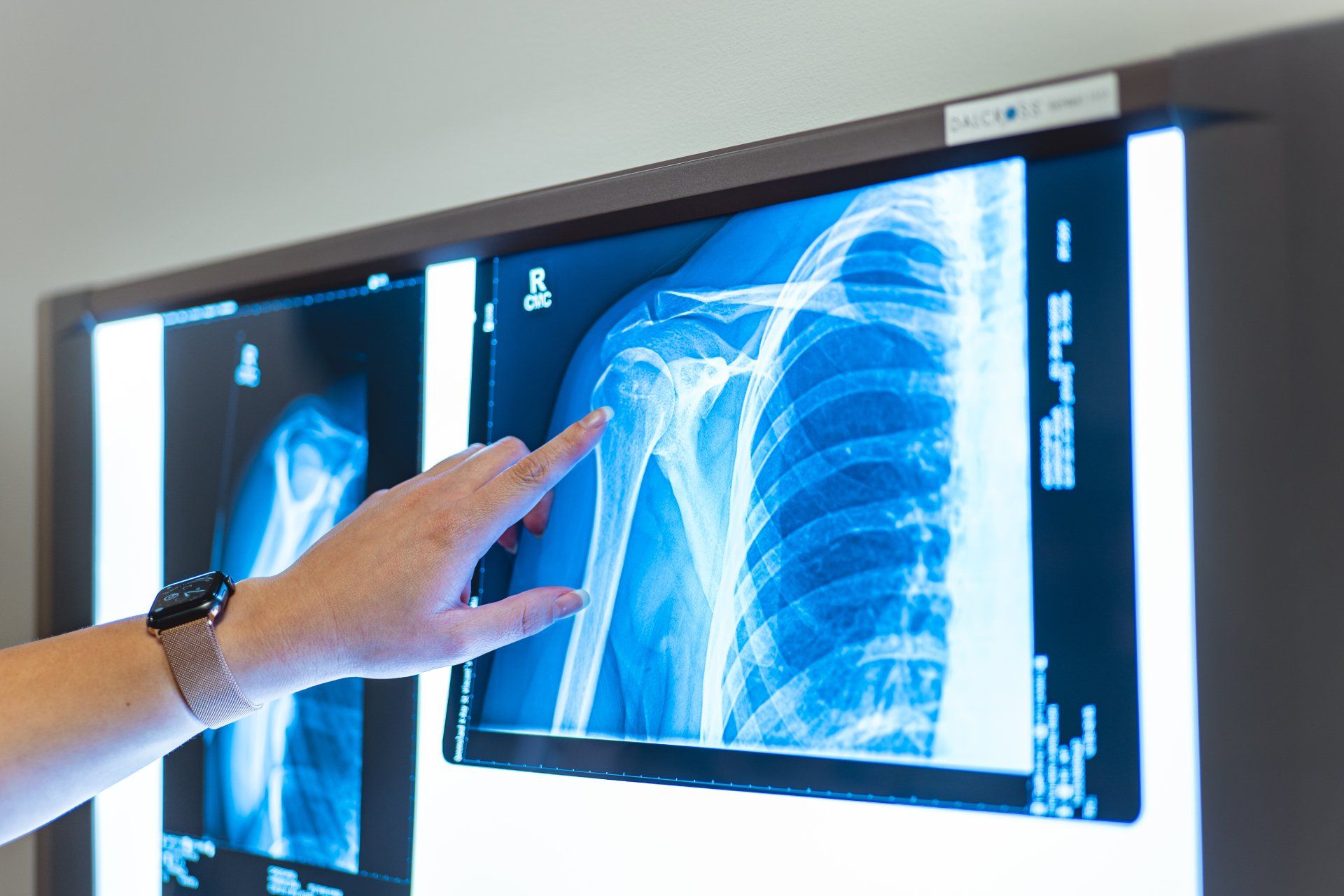Shoulder & Elbow Surgery

The shoulder joint can become arthritic for a variety of reasons, including osteoarthritis, rheumatoid arthritis, avascular necrosis, progressive rotator cuff disease and post-traumatic arthritis.
There are different designs of replacement based on the cause of your arthritis. Joint replacement is an appropriate treatment option when all non-surgical management fails to adequately control the pain of the arthritis.
As with replacement of the hip and knee, shoulder replacement involves removal of the arthritis surfaces, with replacement using synthetic material. This is most commonly a combination of metal and plastic (polyethylene).
If you would like more information please see our fact sheet below or visit the AAOS Patient information website.
Keyhole surgery for shoulder problems is a common management choice. It can be used to treat conditions such as bursitis and impingement. Arthroscopy is commonly performed in combination with open surgery for other shoulder pathologies. Your treating surgeon will be able to discuss the role of arthroscopy in the management of your problem.
If you would like more information please visit the AAOS Patient information website.
Rotator cuff tears are a common shoulder problem. When a rotator cuff tear causes interference with activities of daily living and work, patients will often seek surgical intervention.
Depending on the nature of the rotator cuff injury, it may be treated with either open or arthroscopic surgery, or a combination of both.
Management often involves a period of reduced activity following surgery and includes rehabilitation with the physiotherapist.
If you would like more information please see our fact sheet below or visit the AAOS Patient information website
Shoulder dislocation is an injury often associated with young sportspeople. It does not always need to be managed surgically, and in certain patients, physiotherapy can lead to a stable shoulder joint.
For those patients who suffer recurrent shoulder dislocations, surgery may be an option. This can be performed either through an open approach or by keyhole (arthroscopic) surgery.
Your surgeon will have particular reasons for selecting either approach and will discuss these with you.
If you would like more information please visit the AAOS Patient information website

